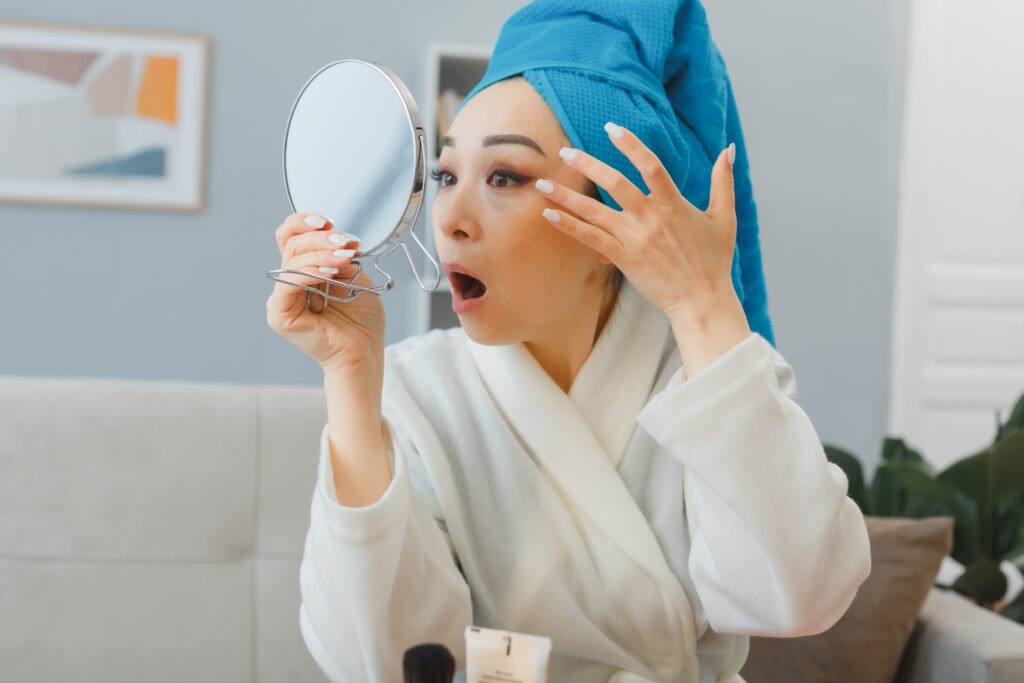Clean eyes are very essential to comfort and eye protection. Natural dirt and debris, including dust, allergens, bacteria, and oils, are naturally deposited in the eyes and may accumulate in the tear ducts, promoting infection and triggering inflammation if left unchecked. Safe routine cleaning of the eyes can help prevent simple ailments like conjunctivitis (pink eye) and blepharitis (lid swelling), promoting long-term eye protection and improved vision clarity.
Understanding Eye Anatomy for Safer Cleaning
Understanding how sensitive eye structures function informs more effective cleaning practices.
- Eyelids & eyelashes act as barriers that trap debris—cleaning them helps reduce buildup.
- Tear film lubricates and flushes contaminants; gentle cleaning should support its balance, not disrupt it.
- The conjunctiva (the eye’s mucous membrane) is delicate and prone to redness; harsh cleaning can inflame it or worsen dryness.
Common Mistakes to Avoid
Incorrect habits often do more harm than good.
- Using harsh liquids like alcohol, hydrogen peroxide, or perfumes that strip natural oils.
- Rubbing vigorously can bruise lids or push debris deeper.
- Sharing towels, makeup, or cleaning tools—this spreads bacteria and viruses.
- Neglecting contact lens care—reusing solution or failing to clean cases—invites microbial growth.
Daily Eye Hygiene: Best Practices
Practicing safe routines every day keeps eyes healthy and clear.
Choosing Safe Cleaning Solutions
Do not use any non-sterile saline but instead, use pre-packaged eyelid cleaning wipes or light ophthalmic cleansers. These are made to clear up debris, without breaking your tear balance. Do not prepare self-made mixtures or expired solutions, which can contain infections.
Step-By-Step Cleaning Routine
- Wash your hands thoroughly before touching your eyes.
- Soak a cotton pad in warm saline or eyelid solution—warmth helps loosen residue.
- Close your eyes and gently wipe from the inner corner outward—repeat with new pads for each eye.
- Pat dry with a clean tissue, then blink to redistribute the tear film.
Contacts, Allergies & Makeup: Special Care Tips
Contact Lens Cleaning
- Always remove lenses before cleaning your eyes.
- Rinse lenses with fresh, approved disinfecting solution every time—never reuse old solution.
- Replace lens cases every three months to prevent contamination.
Allergy-Related Eye Care
Seasonal allergies cause itching, redness, and excessive tearing. To clean:
- Use cold compresses or preservative-free artificial tears to soothe inflammation.
- Avoid rubbing—this can harm delicate tissues.
Removing Eye Makeup Safely
Gentle cleansing helps avoid irritation.
- Choose oil-free eyeliners and mascaras.
- Remove makeup with a soft pad, sweeping from the lash line outward.
- Rinse again with a sterile wipe to remove residue completely.
Spotting Warning Signs of Eye Infection
Recognize when professional care is needed:
- Redness or swelling beyond mild irritation
- Persistent discharge—especially green, yellow, or crusty
- Pain, burning, or itchiness that doesn’t ease quickly
- Blurry vision, light sensitivity, or noticeable vision changes
These symptoms may indicate infection or serious eye conditions—prompt medical attention is essential.
When to Visit Southern Immediate Care
When the symptoms can be relieved by simply cleaning up gently, or when new pains, swellings, discharge, or changes in vision appear, Southern Immediate Care can do the assessment and treatment. Providers can give prescription drops, antibiotics, or even diagnostics of a high level to save your sight and comfort.
Protective Measures for Long-Term Eye Health
- Wear UV-blocking sunglasses outdoors
- Use protective eyewear during activities like swimming, construction, or yard work
- Limit screen strain by keeping devices at a comfortable distance and brightness
- Practice the 20-20-20 rule: every 20 minutes, look at something 20 feet away for 20 seconds
Natural Remedies and Their Role
Some home remedies can complement medical care, but with caution:
- Warm compresses help unblock glands and reduce inflammation
- Cool compresses can relieve itching from allergies
- Herbal teas (like chamomile) can soothe eyelids—only if fully cooled and strain-free
Remember: home remedies should complement—not replace—professional advice.
Eye Hygiene for Children & Seniors
- Kids: Use small, soft cloths and make cleaning gentle and enjoyable.
- Seniors: Daily routines with pre-moistened pads help manage dryness and prevent infections, especially when using drops or wearing lenses.
Conclusion
By cleaning your Eye Cleaning Las Vegas the right way, you ensure comfort, clarity, and protection against infections. Prioritize warm, gentle routines, use safe solutions, and watch for warning signs. If symptoms develop or don’t improve, trust Southern Immediate Care to provide expert evaluation and treatment. Schedule your care today—your eyes deserve it. To schedule your appointment with the highest standard of care, visit Sahara West Urgent Care on our website, where you can also explore more informative blogs.
FAQs
How often should eyes be cleaned?
Daily cleaning is optimal, particularly after makeup use, outdoor exposure, or contact lens wear.
Can I use baby shampoo for eyelid cleaning?
No—baby shampoo can be too harsh and disrupt tear film. Stick to saline or sterile lid wipes.
Are warm compresses safe every day?
Yes—applying for 5–10 minutes once daily can help maintain clear, unblocked glands.
When should I not clean my eyes?
Avoid cleaning during an eye flare or pain—let a medical professional assess first.
When is doctor intervention necessary?
Seek care if symptoms—like redness, pain, unusual discharge, or vision changes—linger longer than 24–48 hours or worsen.



